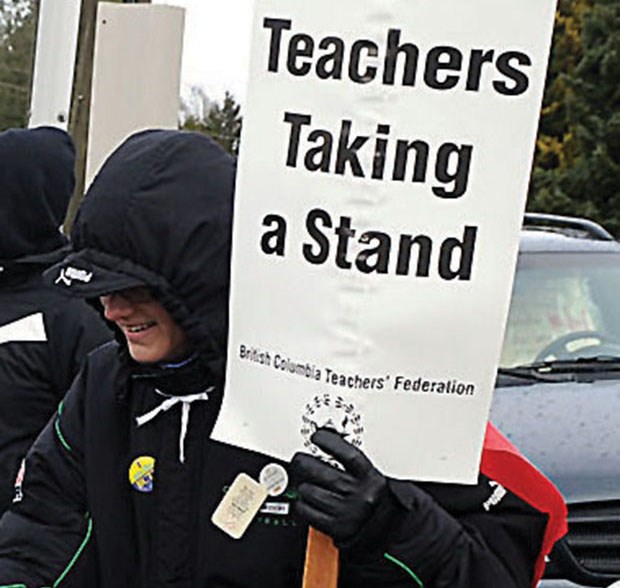Teaching and extracurricular activities will continue as usual despite pending job action by teachers, according to the Delta school district.
The board of education says it will be issuing a letter to parents addressing concerns about what impacts will result from the B.C. Teachers' Federation Thursday issuing 72-hour strike notice to all public school districts. The job action, which is legal, is to begin next
Wednesday. The teachers won't be going on a full-scale strike and shutting down schools, instead launching a first stage where they will withdraw from certain administrative duties. Teachers will not be meeting with administrators, won't engage in written communications with administrators and will not undertake student supervision during non-instructional time.
However, that doesn't mean field trips or sports activities are cancelled, said superintendent Dianne Turner, noting principals and administrative staff will carry out supervision.
Classroom teaching will also continue as usual and report cards will continue to be issued.
An escalation in job action could impact students, however.
The BCTF said that it will begin a "low-level stage 1 job action" in response to disappointing progress at the negotiating table, where the government and employer's association have not backed off from unfair and unreasonable demands.
"On March 6, after over a year of negotiations, 89 per cent of B.C. teachers voted in favour of potential job action to help secure a fair and reasonable settlement," said BCTF president Jim Iker. "The overwhelming vote was a strong and decisive mandate from teachers to put pressure on Christy Clark's government and the negotiators for the B.C. Public School Employers' Association. Teachers hoped that the vote would encourage the government and employer's association to back off key demands, strips, and unreasonable positions."
Iker said, the government and employers' positions have barely moved since the teachers voted.
Education Minister Peter Fassbender's response to last month's strike vote was that the employers' bargaining team tabled a comprehensive initial position, including a 6.5 per cent wage increase in the first six years. Class size and composition are on the bargaining table, and that's where the discussions need to occur, he said.
Two years ago, teachers took part in a three-day. The government teachers' union eventually reached a deal, but then BCTF president Susan Lambert said important issues remained unresolved, including class size and composition.
Earlier this year, the B.C. Court of Appeal granted the provincial government's application for the stay of a potentially costly ruling by the B.C. Supreme Court, which found that legislation introduced in 2012 removing class size and composition from contract negotiations was unconstitutional.



